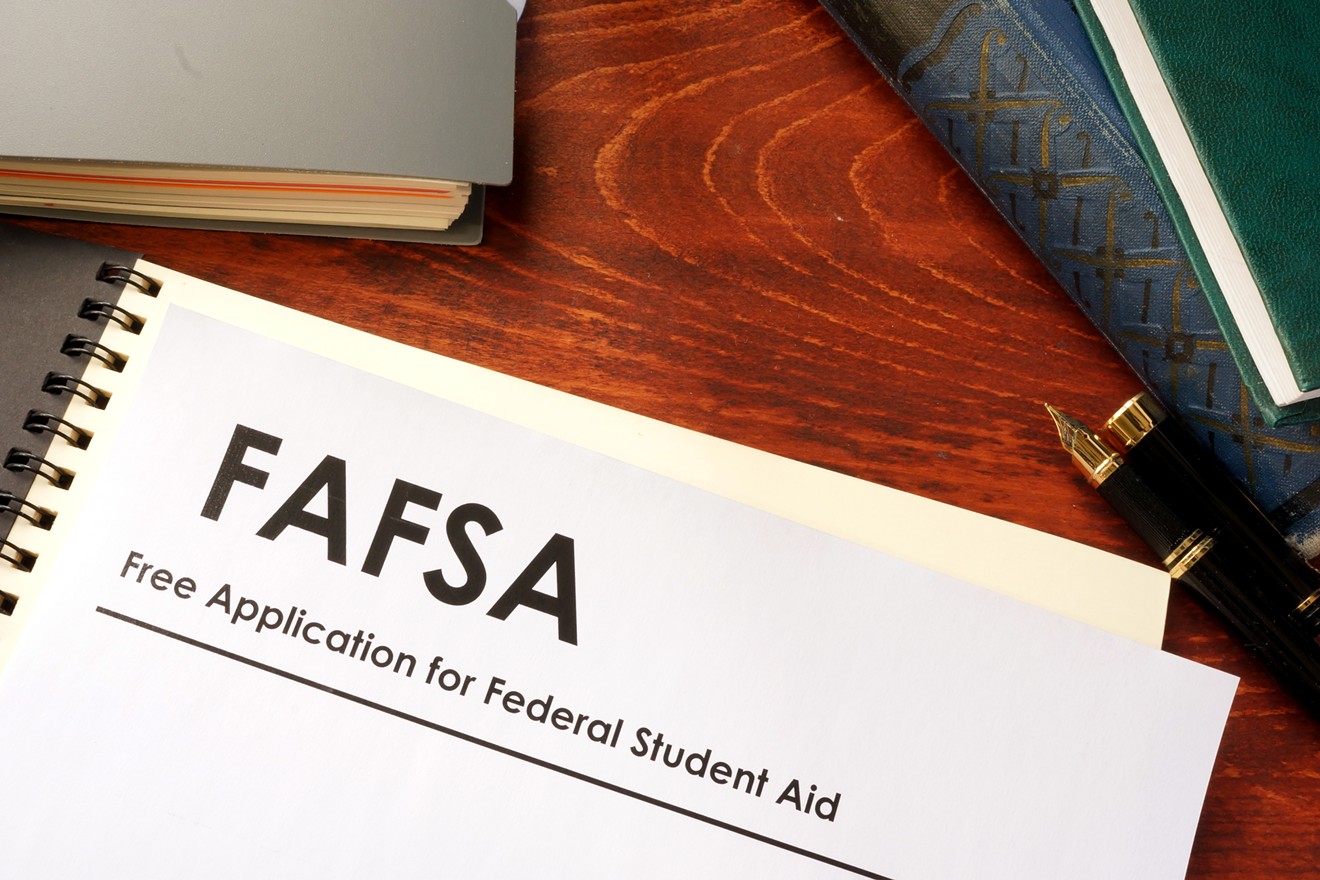One state to the east, education officials in Louisiana created a similar requirement three years ago. Nearly all high school students in Louisiana must complete a Free Application for Federal Student Aid, or FAFSA, before graduation. Since the rule took effect, the state has seen record-high numbers of students who enroll in college immediately after graduating from high school, according to the Louisiana Department of Education.
Experts say Texas shouldn't necessarily expect to see the same dramatic outcomes as its neighbor, but Louisiana offers the clearest, and only, example of the possible benefits of the FAFSA requirement.
Texas' new requirement was a part of House Bill 3, a school finance overhaul that Gov. Greg Abbott signed into law in June, at the end of the 2019 legislative session. Under the rule, students are required to complete either a FAFSA or Texas' state-level equivalent, the Texas Application for Student Financial Aid, before graduating from high school. Students who are 18 or older, and parents and guardians of younger students, may sign a waiver declining to fill out the form. The requirement goes into effect in the 2020-21 school year.
Texas was the second state in the country, after Louisiana, to pass such a requirement. The Illinois General Assembly passed a similar law just weeks after Texas lawmakers approved House Bill 3. Illinois Gov. J.B. Pritzker signed it last week.
The Louisiana Board of Elementary and Secondary Education created a similar requirement in late 2015 to try to boost the number of students who enrolled in college after high school, said Kevin Calbert, a spokesman for the state school board.
For years, Louisiana had emphasized college readiness programs at the high school level, but education officials there realized that many of the state's high school students couldn't cover the cost of college. Officials knew that most of the state's students would qualify either for need-based or merit-based aid, but less than 50% of the state's graduating seniors were applying for student aid."We knew at that point that our students as a whole were losing tens of millions of dollars each year." — Kevin Calbert
tweet this
"We knew at that point that our students as a whole were losing tens of millions of dollars each year," Calbert said.
One year after the rule went into effect, Louisiana saw its largest percentage ever of high school seniors who filled out the form. About three quarters of the state's graduating class for 2018 filled out the form, Calbert said. Now, three years after the rule was drafted, more of the state's high school seniors go on to college immediately after graduation than ever, he said.
"There's a lot of factors involved in that, but this certainly doesn't hurt," Calbert said.
One key factor in that uptick in Louisiana was support for students who now had to fill out the form, Calbert said. The FAFSA is a long form that requires detailed financial information from the applicant's family. For many students, just filling it out is an obstacle. So state officials put together brochures and other materials to help students understand the form, held completion fairs where counselors helped students fill it out and worked with high school counselors to make sure they were prepared to walk every student through the process.
Although Texas' requirement is similar to Louisiana's, Bill DeBaun, director of data and evaluation for the National College Access Network, said it's not necessarily a sure bet that Texas will see the same results as Louisiana. A number of differences between the states, including a larger percentage of Texas students who are undocumented, could affect outcomes here.
Still, DeBaun said, even if Texas sees much more modest results, it could mean a big impact. If Texas sees 25% of the increase in FAFSA completions that Louisiana did, it would mean nearly 13,000 more students filling out the form, he said. Some of those students will learn they're eligible for Pell grants and other federal financial aid. For many low-income students, that eligibility could make college a realistic option, he said.
One factor that will make a major difference in the new requirement's success is how many of those students actually complete their degrees, DeBaun said. When students spend a few semesters in college and take on student debt but never complete their degrees, it can leave them worse off than if they'd never gone to college at all.
It's too early to say to what extent Louisiana's FAFSA requirement will translate into an uptick in college degrees awarded, DeBaun said. It will be a few years before the rule's full effects are known.
"The early signs are encouraging," DeBaun said. "The leading indicators are encouraging, but we need to see it all the way through to completion."












